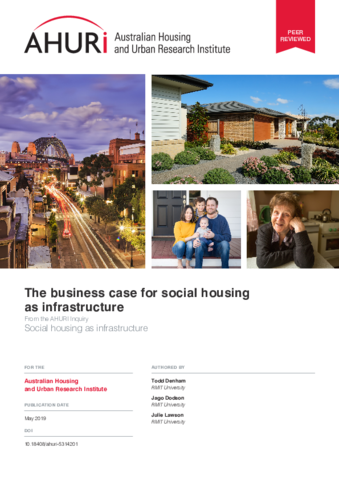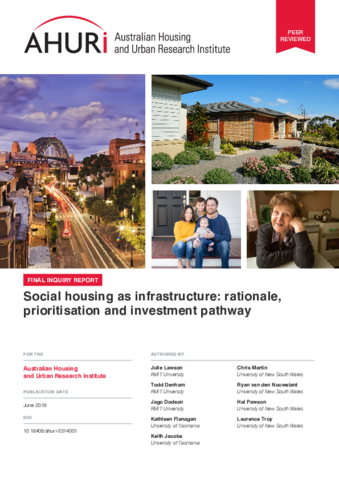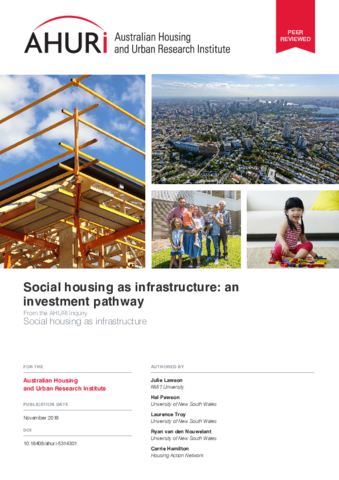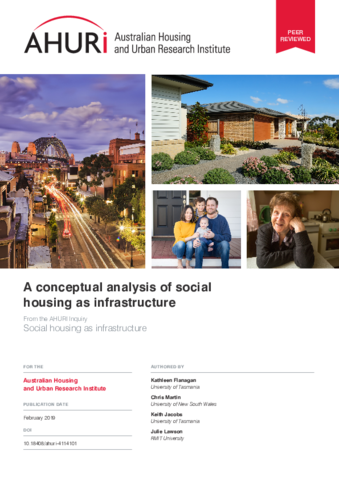This research aims to develop a persuasive, robust and credible case for social housing to be treated as a form of essential infrastructure, in order to create a viable basis for greater investment in the social housing system. The research also challenges assumptions about who social housing should be for and why.
Infrastructure may be best understood to be a form of spatially fixed, materially realised capital expenditure, the provision of which enables the delivery of economic or productivity outcomes or essential services. ‘Social infrastructure’ is ‘the facilities and equipment used to satisfy the community’s education, health and community service needs, such as hospitals and schools’.
Housing can be considered infrastructure in that it allows labour to be more productive. Specifically, housing affects productivity through agglomeration economies, where the density and size of populations allows for labour and the production and delivery goods and services to interact more efficiently. Social housing similarly delivers important economic and social benefits, providing tenants with a secure base from which to engage in education or employment or to become involved in their communities.
This research suggests a way forward for policy makers in which pragmatic adoption of cost-benefit analysis and business case preparation is aligned with strategic arguments to promote the value of social housing, and in which adequate investment into the social housing system is prioritised at all levels of government.





